Written by Danny Kellermeyer/DJ Racing
Good brake pads are a necessity for all vehicles. Trying to determine what you need for your driving application can be difficult, and the more money you spend doesn’t mean it is the best selection for your Corvette.
What Are Brake Pads, and How Do They Affect Corvette Performance?
Brake pads are what stop your car. The pads are in the caliper and are touching the spinning metal rotor, so when the brake pedal is pressed, the caliper closes to clamp the rotor and slow or stop the car. This causes friction (and heat) at every stop. The rotors are designed with vanes inside the rotor sides to vent and dissipate the heat produced.
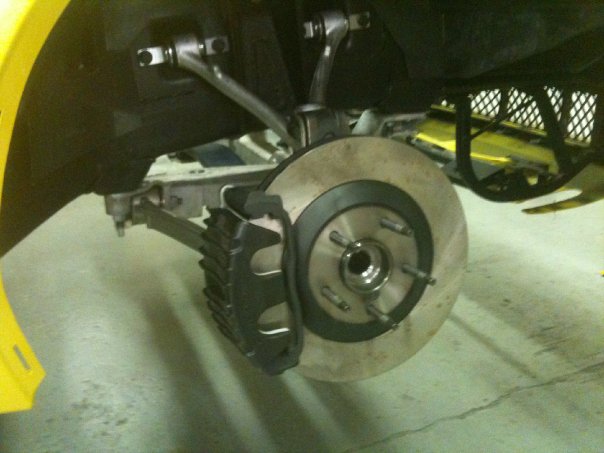
Fig. 1 – Front Caliper Pads and Rotor
The pad material (pad compound) changes to give different characteristics for your driving needs. Organic, ceramic, or semi-metallic compounds are used. So, what do you need? The first question is, what are you expecting from your brakes? Are they being used for street driving, performance driving, auto crossing, or full road racing?
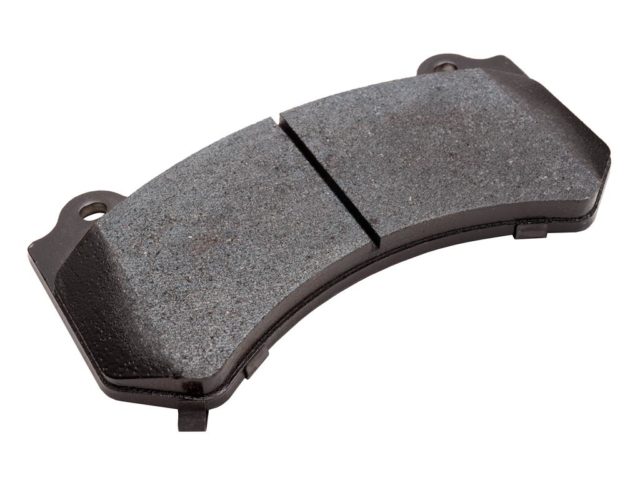
Fig. 2 – C7 Ceramic Front Brake Pad
First, determine how your Corvette is going to be used. Are you street driving only, or are you doing a combination of street and auto crossing? How you will be using your car and the proper pad choice will give you the best stopping power and the best life of the pad.
The Best Corvette Brake Pads for Street Driving
Let’s first talk about street driving. Street pads (or street compounds) give you good stopping power with low noise and little dust on the wheels. Organic and ceramic pads have been very popular for production and service. These compounds do not damage rotors and provide smooth and even friction during braking. Ceramic pads are also clean and produce less dust as they wear. Organics pads offer the advantage of lower cost. Ceramic street pads can operate in a heat range from 100-600°.
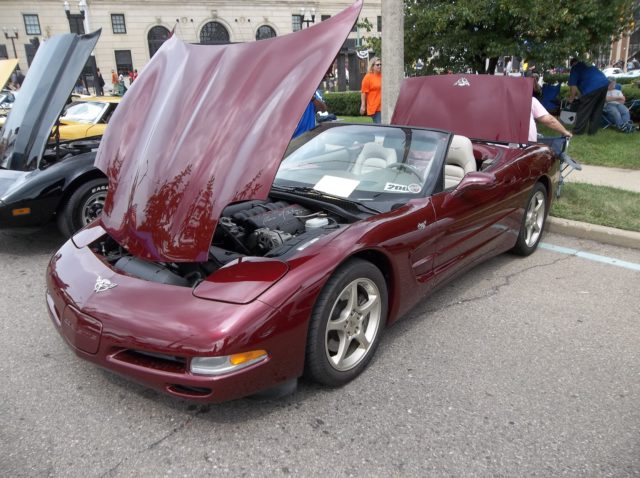
Fig. 3 – C5 Street Corvette
The Best Corvette Brake Pads for Autocrossing
Using your Corvette for auto crossing or Track day events requires more than organic, and ceramic compounds can offer. The stopping power of the organic and ceramic pads starts to fade as continuous heat generation is created. Autocross/trackpads have a great initial response, great modulation characteristics as well as greater stopping power. They will produce light noise levels, medium dust levels, and can operate in a higher temperature range (200-900°). These pads will usually cost a little more but are also more conducive to repeated stopping power.
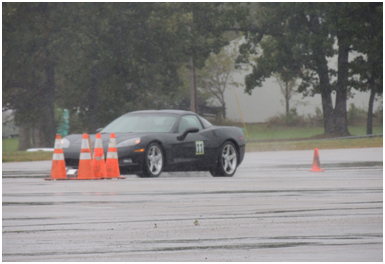
Fig. 4 – Autocrossing Events
The Best Corvette Brake Pads for Road Racing
Road racing events place the brake pads under extreme conditions. These pads are not designed to be quiet. They are designed for continuous stopping power and are required to take the heat over and over again with little brake fade. Road racing pads have an excellent initial response, excellent modulation, excellent stopping power but will exhibit high noise levels as well as high dust levels. They can operate and maintain high torque capability under extreme heat (400-1400°)
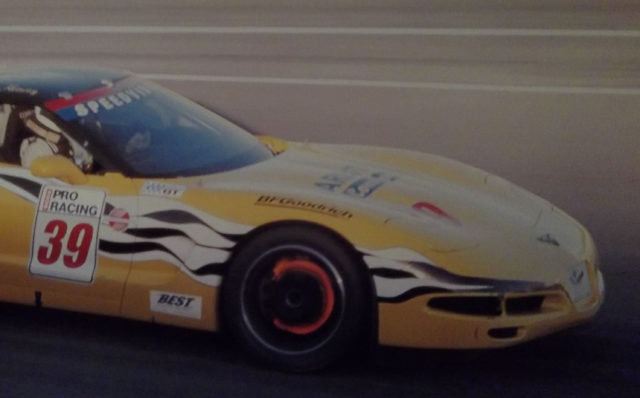
Fig. 5 – DJ Racing Corvette Front Rotors Glowing
How to Measure Corvette Brake Pad Performance
The friction against the brake rotor surface (i.e., coefficient of friction) is measured in terms of Mu. If no friction is present, it is measured as a Zero. While full friction, which stops movement, is equal to 1.
The Mu factor will change with brake pad temperature. The pad compound will determine how quickly it will ramp in to stop your Corvette as well as how fast it will drop off (or fade) at higher temperatures. The Chart from Hawk Performance (Figure 6) describes the relationship of Mu change to temperature conditions. Street pads (Performance Ceramic) will usually operate in the 300 ° range. Auto crossing (HP+) will operate approximately in the 500° area. Full racing (DTC70) will operate in the 800° range and can spike up to 1300°.
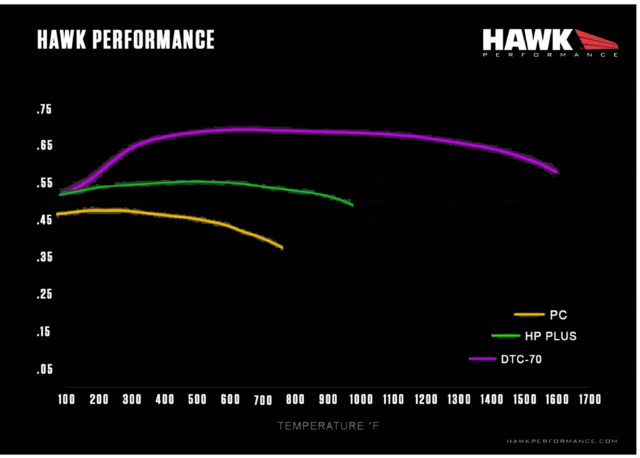
Fig. 6 – Hawk Performance: Temp. vs. Mu Plots
The Bottom Line: It’s All About Brake Pad Compounds
Do a little research to find out what compound you are buying. This will give you what you need for your Corvette, whether it is low dust, quiet operation, or full out repeatable stopping. When asking your Corvette to drive in different applications, it will be a give and take when it comes to dust or brake fades.
Sources:
Hawk Performance
920 Lake Rd
Medina, Ohio 44256
Wilwood Disc Brakes
4700 Calle Bolero
Camarillo, CA 93012
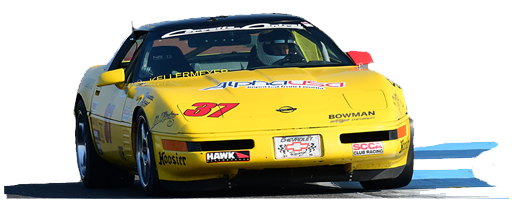
Hello,
I’m currently running the ’84 C4 Z51 option Manual Coupe. I use it for autocross primarily, but will be looking into road races in the near future. I am also running the OEM Girlock brakes with Stainless steel brake lines and Dot 5 Synthetic fluid. What are my options, pad wise with this set up… I’m currently running in Group 1 Stock / NCCC classification. Autocross and Road Racing compromise 99% of the use of the car at this time. So low mileage also. Thank you.
Looking for front and rear brake pads for a 2016 Corvette Stingray, Z51 package. Looking for low dust and low noise pads for street driving application.
Try looking at our rear pads #197012 and front #197026.
2008 Corvette Z06, minimally modified, used on street (interstate and on track occasionally. 146k miles and still going strong. Top speed – 217mph on track.
Do you have any rotor and pad recommendations.